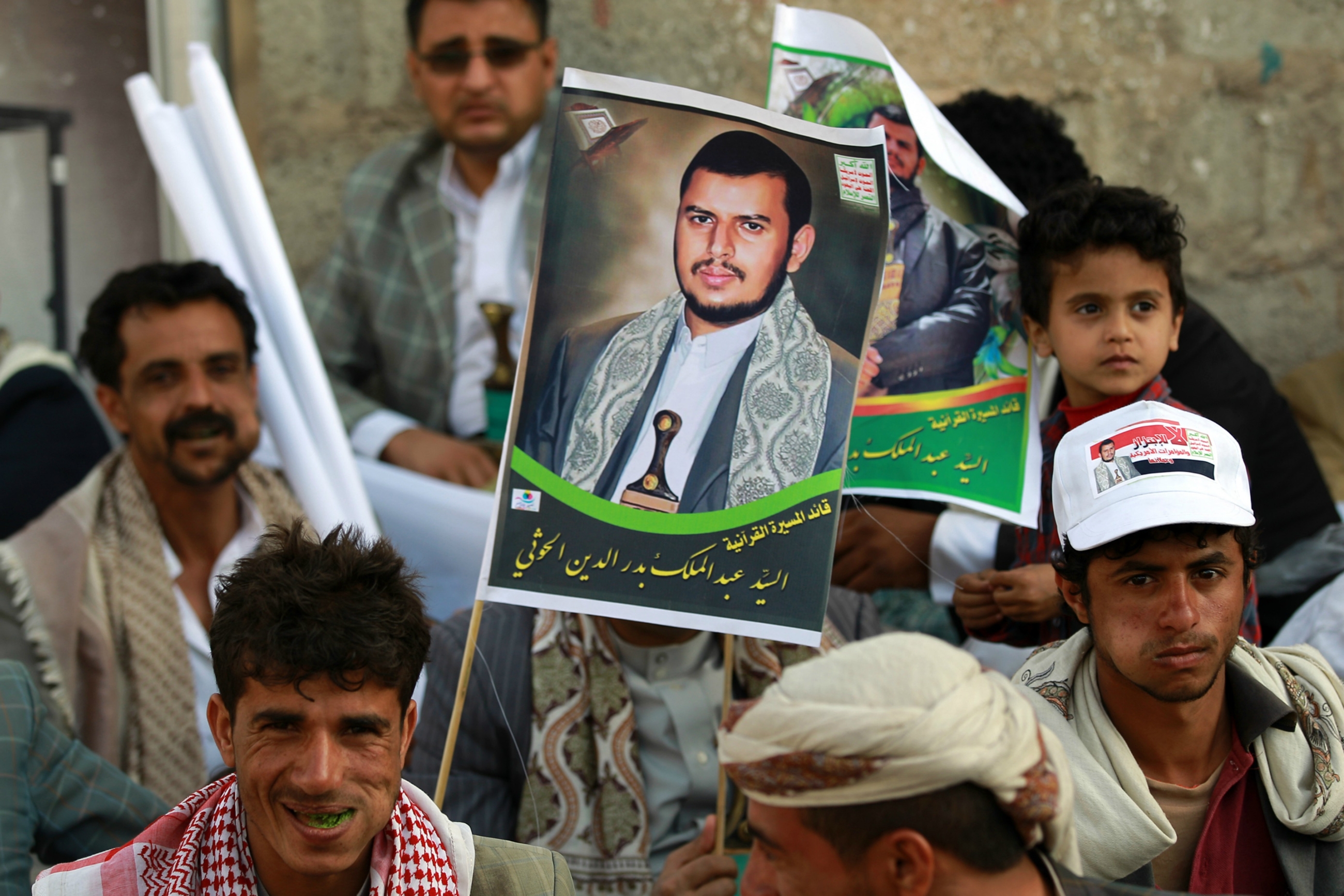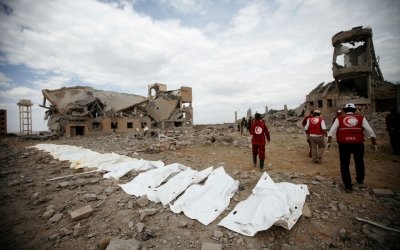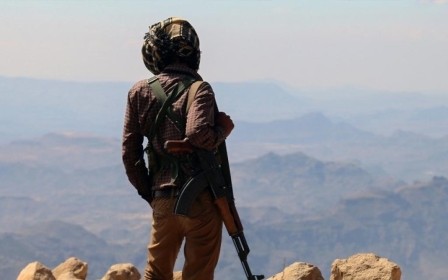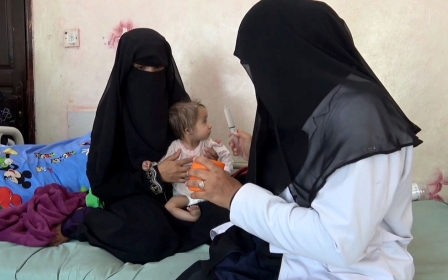Trump administration in talks with Iran-backed Houthis

The United States has entered discussions with Yemen's Houthi movement in an attempt to resolve the country's devastating four-year war, according to a senior US official.
"We are narrowly focused on trying to end the war in Yemen," said Assistant Secretary of Near Eastern Affairs David Schenker.
"We are also having talks to the extent possible with the Houthis to try and find a mutually accepted negotiated solution to the conflict."
The war in Yemen began in 2015 when a Saudi-led coalition, backed by western powers, intervened to restore Yemen’s ousted government following the Houthi takeover of the capital Sanaa.
Over four years, the conflict has claimed tens of thousands of lives and sparked what the United Nations calls the world's worst humanitarian crisis.
New MEE newsletter: Jerusalem Dispatch
Sign up to get the latest insights and analysis on Israel-Palestine, alongside Turkey Unpacked and other MEE newsletters
The fighting has been at a stalemate for years, despite the coalition carrying out thousands of air strikes on Houthi-controlled areas.
Last week, US newspaper The Wall Street Journal reported that the Trump administration was looking to push Saudi Arabia to participate in secret talks with the Houthis in neighbouring Oman. The initiative was intended to mediate a ceasefire deal, the newspaper quoted officials familiar with the matter as saying.
The US and Saudi Arabia view the Houthis as proxies for Iran, which has declared public support for the group. Washington and Riyadh view the Yemen war as part of a wider regional conflict with the Islamic Republic.
The Houthis have denied being supported by Tehran and say they are fighting against a corrupt system.
Officials from former US President Barack Obama's administration secretly met with Houthi leaders in 2015 shortly after the war began to secure the release of American hostages. US officials also met with Houthi leaders in Sweden during UN-led peace talks held in December 2018.
However, the officials told the WSJ that there had been no significant direct discussions with the group since 2017.
Middle East Eye delivers independent and unrivalled coverage and analysis of the Middle East, North Africa and beyond. To learn more about republishing this content and the associated fees, please fill out this form. More about MEE can be found here.





